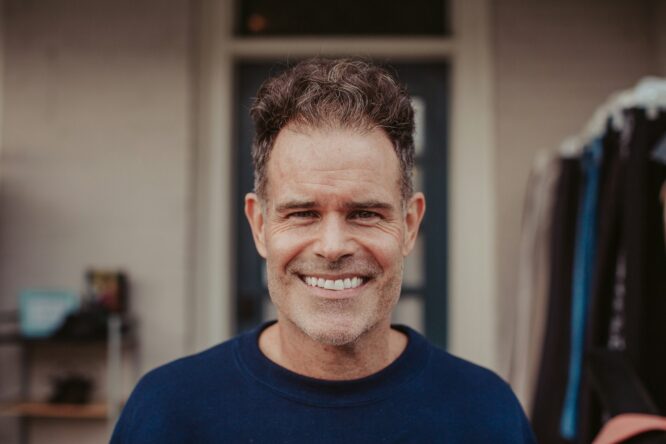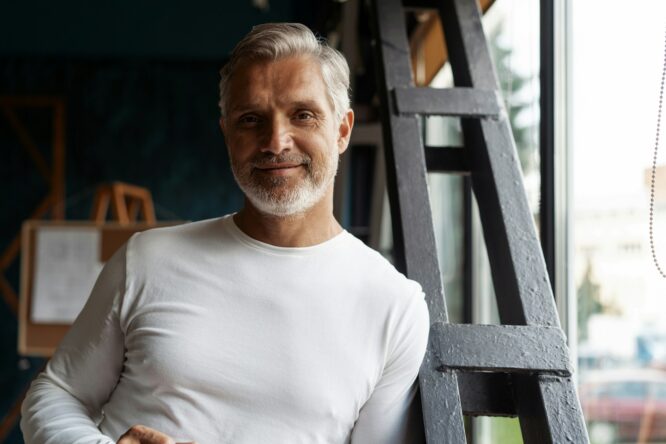Self-love isn’t always bubble baths and affirmations.

Sometimes it’s being able to say something kind to yourself without immediately laughing, deflecting, or turning it into a joke. For a lot of people, even simple phrases can feel awkward or fake at first, but if you’ve reached the point where these kinds of statements don’t make you squirm, there’s a good chance you’ve done the work to really like (and trust!) who you are. People who truly love themselves can say these things without cringing (or at least with less resistance than they used to).
1. “I deserve good things, even when I mess up.”

This one’s big because it pushes back against the old belief that you have to be perfect to be worthy. If you can say this and believe it, or even half believe it, you’ve probably unlearned a lot of guilt and shame. Real self-love doesn’t disappear the minute you make a mistake. It sticks around, quietly reminding you that being human doesn’t make you undeserving—it just makes you, well… human.
2. “I’m not for everyone, and that’s okay.”

This statement used to feel terrifying for people-pleasers, but now, it’s freeing. You don’t need to twist yourself into knots to be liked by every single person you meet. Loving yourself means knowing that the right people will get you, and the rest aren’t your job to impress. You’re not a universal remote; you’re a full human, and not everyone’s going to vibe with you. That’s peace.
3. “I like who I’m becoming.”

There’s something powerful about looking at your growth and not immediately picking it apart. If you can genuinely say this without adding “but I still have so far to go,” you’re doing the kind of self-acknowledgment most people avoid. It means you’re not just focused on fixing yourself. You’re also appreciating the progress. That shift from self-criticism to self-recognition? Huge.
4. “I don’t need to explain myself to be valid.”

This hits different when you’ve spent years trying to justify your feelings, choices, or boundaries. Saying it out loud, and really believing it, means you’ve started honouring your inner compass more than other people’s opinions. It’s not about being defensive. It’s about knowing you’re allowed to feel how you feel, want what you want, and say no, even if no one else claps for it.
5. “I’m allowed to take up space.”

Whether it’s physical space, emotional space, or mental energy in a room, this one can be tough for people who’ve always felt like they had to shrink. But saying it with confidence? That’s growth. You’ve stopped apologising for existing or trying to make yourself smaller to keep other people comfortable. You take up space now, and not just in the room, but in your own life.
6. “I handled that really well.”

This doesn’t come naturally to most people. We’re wired to downplay our wins or act like it was no big deal. But being able to recognise when you did something well, and actually say it, is a major act of self-respect. You’re not being arrogant; you’re just not skipping over your own efforts anymore. That kind of self-acknowledgment builds quiet confidence over time.
7. “I forgive myself.”

This is one of those things that sounds easy but feels impossible when you’re used to carrying shame. Being able to say it and mean it means you’re choosing growth over punishment. It doesn’t mean you don’t take responsibility. It means you’re done dragging yourself through the mud for things you’ve already learned from. That’s real love—the kind that makes room for mistakes without holding them over your head forever.
8. “I trust my own judgement.”

If you’ve had your confidence chipped away over time, this one can feel fake at first. However, once you start making decisions based on your own instincts, and they actually lead somewhere good, this becomes easier to say out loud. You don’t need ten people to co-sign every move you make. You know yourself, and even when things don’t go perfectly, you’re learning to have your own back anyway.
9. “I’m not responsible for other people’s feelings.”

This can feel harsh if you’re naturally empathetic or used to being the emotional fixer. Of course, being able to say it calmly, and actually believe it, shows serious emotional boundaries. You’re not cold. You just know where you end and where other people begin. And that line helps you protect your energy without drowning in someone else’s emotional storm.
10. “I’m allowed to need help.”

For people who pride themselves on independence, this can be a tough one to say without cringing. However, letting people in without shame is one of the most self-loving things you can do. It shows you trust yourself enough to ask for support without thinking it makes you weak. You know your limits, and instead of pushing through to exhaustion, you ask for a hand when you need it. That’s growth.
11. “I’m proud of myself.”

Not in a sarcastic, self-deprecating way—in a quiet, grounded, “yeah, I did that” kind of way. If you can say this out loud without needing permission, that’s a big win. It means you’ve stopped waiting for external validation to feel good about who you are. You see your own effort, even when no one else is clapping, and that self-recognition hits deeper than applause ever could.
12. “I don’t need to be ‘on’ all the time.”

If you can admit this without guilt, you’ve probably moved out of burnout culture and into something healthier. You’re no longer measuring your worth by your productivity, performance, or emotional cheerfulness. You can rest without needing to earn it. You can show up low-energy without apologising, and you’ve stopped confusing constant output with being a good person.
13. “I like spending time with myself.”

This isn’t just about being okay with being alone—it’s about actually enjoying your own company. If you can sit in silence or do something solo without feeling restless or lonely, you’re probably in a solid relationship with yourself. When you love who you are, being alone doesn’t feel like a punishment. It feels like peace. You’re not escaping. You’re just hanging out with someone you genuinely enjoy.
14. “I’m enough as I am.”

This one hits deep. You’re not saying you’re perfect. You’re saying you don’t need to constantly prove or perform just to earn your place in the world. You’re already enough, even on the messy days. If you can say this without flinching, you’ve made it through a lot of internal noise. And now? You’re not asking yourself to be more in order to feel worthy. You just are.
15. “I don’t compare myself like I used to.”

This doesn’t mean you never scroll and feel a twinge of envy. You’re human, after all. However, you’ve stopped making everyone else’s journey the yardstick for your own. That’s massive. You’ve learned to stay in your own lane, even when someone else’s path looks shinier or faster. That change, from constant comparison to quiet confidence, is one of the clearest signs of real, lasting self-love.




